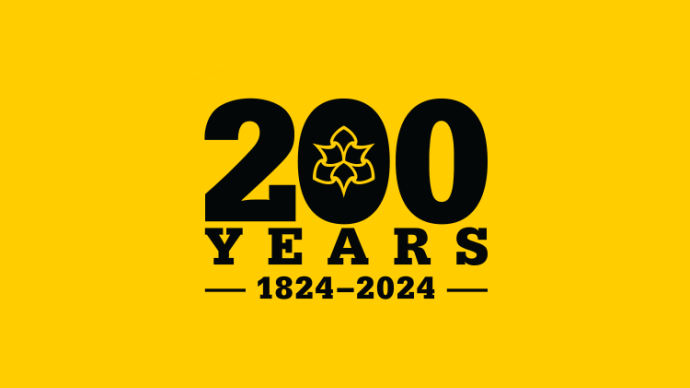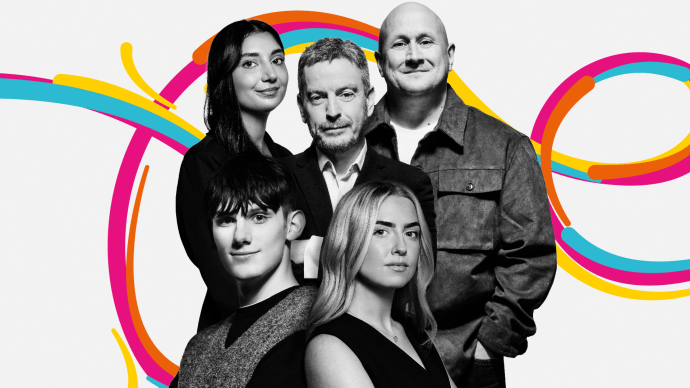Transforming the high street
Cathy Parker Q&A

About the 200 years campaign
Read the quick Q&A with Professor Cathy Parker MBE to get the lowdown on how her work at Manchester Metropolitan University helps regenerate towns and cities across the globe.
The main story
How does it feel to be part of our 200-year anniversary?
I’m really proud to be part of Manchester Met’s 200-year celebrations.
It’s brilliant to be working at a university that has played such an integral role in supporting the ambitions of this amazing city, Manchester.
I can’t quite believe that I’ve been at Manchester Met for 25 years and it’s certainly been around a lot longer than I have.
But it’s an important milestone year for the university and I’m very proud to be part of its celebrations.
How do you help high streets thrive?
I’ve worked at Manchester Met for over 25 years now, and in that time, I’ve been looking at how town and city centres change.
My research really tries to simplify what’s quite a complicated problem and prioritise, importantly, what local people, and businesses, and local councils can do to make their high streets thrive again.
And it is quite simple really.
Most people want to come to a busy activated place, so you can put on festivals and events like we’ve got here – the Christmas markets in Manchester. They attract absolutely hundreds of thousands of people.
Even in small towns, you can do something on a smaller scale to make your high streets vibrant again.
The main story part 2
Why does your work mean so much to you?
It’s important to me that places thrive because everyone wants to feel proud of where they live.
High streets and town centres are sort of symbolic of the health of a location.
So that’s why I’ve spent my career really helping local businesses and local people understand what it is they can do to make their places better.
In what ways have town centres changed?
Since I’ve been studying town and city centres, I’ve seen a lot of changes.
Ten, 15 years ago, towns and cities were really just full of shops and people came to spend money and buy things.
Now people come to towns and cities for lots of different reasons, and that’s very important that places become more multifunctional, otherwise they’re at risk.
And we’ve seen that with the sort of collapse of a lot of the large retail chains.
So people now come into town to socialise, exercise, they might be employed in the town centre, they might even live in the town centre – we now see a lot more people living above shops again, and a lot more housing development, which is all positive for towns.
We need them to be more resilient and that means having lots and lots of different things packed into them.
The main story pt 3
What current work is driving economic growth?
I’m the research lead for the government’s High Streets Task Force, so I’m working with 150 locations around England to help them understand what they can do to make their high street successful.
Most of the time, all we’re doing really is helping people articulate the vision for their town. And most people don’t want a failing high street – everyone wants a successful high street, so it is quite easy to get everyone on the same page. It’s not always so easy for people to agree exactly what needs to be done.
What we try and do through the Task Force and the research work we do is to really get under the bonnet of what the issues are locally.
That might be something like traffic management, it might be that the offer is not strong enough in the town – what we’ll do is we’ll help really identify what’s blocking that place’s potential and then help identify solutions that can be actioned quickly, don’t need to cost a lot of money, and can start to put the town back on a trajectory to success.
What project are you most proud of and why?
I think the project that I’m most proud of in my career was one called High Street UK 2020.
So, this was back in 2014 when we started to work with ten different towns to understand out of all the hundreds and hundreds of things they could possibly do, what were the 25 things that would make the most difference and bring back footfall to the town centre.
I’m very, very proud of that project because, on the basis of that, we’ve developed lots of theories and toolkits and all sorts of practical things that towns all over the world have used to help bring people back into their town.
What was it like to be awarded an MBE?
I was very lucky to be awarded an MBE in the King’s Honours list in the summer of ‘23.
I was very humbled by that because I feel it was the first time an award had been given in my area to place management.
I felt when I was given that award, I was given it on behalf of all the hundreds and thousands of people who work to make their local places better.
Cathy Parker: at a glance
Cathy Parker MBE is Professor of Retail and Marketing Enterprise at Manchester Metropolitan University. She heads the University’s Institute of Place Management, which leads the government’s High Streets Task Force.
Her work helps transform the nation’s high streets in the face of changing economic conditions and consumer behaviour so that they can thrive.
Before the High Streets Task Force, Prof Parker won and managed more than £10 million in research and consultancy projects. She’s written over 100 peer-reviewed journal articles and competitive conference papers, and her research in the REF2021 was recognised as “world-leading.”
Cathy is also a prominent public speaker who regularly discusses retail-related issues on national TV and radio. And in the King’s Birthday Honours List 2023, Cathy was awarded an MBE for her services to education and place management.

About 200 years
Manchester Met celebrates two centuries of driving progress through excellent education and research.
-
![200 years 1824-2024]()
200 years
Find out more -
![Siemens Chief Executive Carl Ennis posing with the firms degree apprentices]()
Driving economic growth
Find out more


